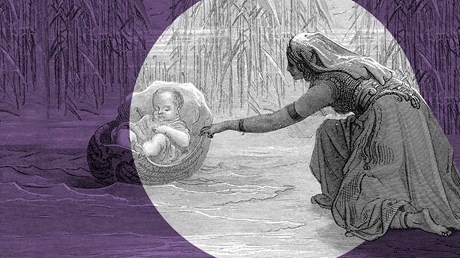The Scriptures are full of stories spotlighting the vital role of motherhood in God’s mission.

Though the American holiday of Mother’s Day is only about 100 years old, various cultures have set aside time to pay homage to mothers for millennia.
For Christians, this celebration involves honoring motherhood through the lens of God’s revelation at the heart of our faith. Our scriptural narrative discloses the inclusion of mothers in God’s divine purposes from creation to new creation.
God’s original plan is that humans would fill the earth and steward it (Gen. 1:28). That project is unsustainable without mothers who give birth to the humans who will cultivate God’s good creation. Even after the first created woman (and man) tarnishes the goodness, beauty, and simplicity of that plan with disobedience, God never gives up on her or the plan.
It is after their transgression and the entrance of pain, division, and even death that Adam sees evidence of God’s grace in his partner—who is fittingly named Eve (3:20). because she will be mother of the living (Eve and living are closely related in Hebrew). Death will not have the final word, and the hope of God’s plan will continue through her because she will bring forth life. The narrator allows her to proclaim God’s grace in the birth of her children (4:1, 25).
Mothers recede into the background as most of the genealogies focus on fathers and sons—but without mothers, of course, these family lines would not continue at all. Over and over again, God invites the participation of women in the divine plan of life.
At times, however, the narrative spotlight of Scripture does fall upon mothers. Time would fail me to recount all the mothers in the Bible who heard and accepted the call to join God’s ...
from Christianity Today Magazine
Umn ministry


.gif)

.gif)
.gif)
